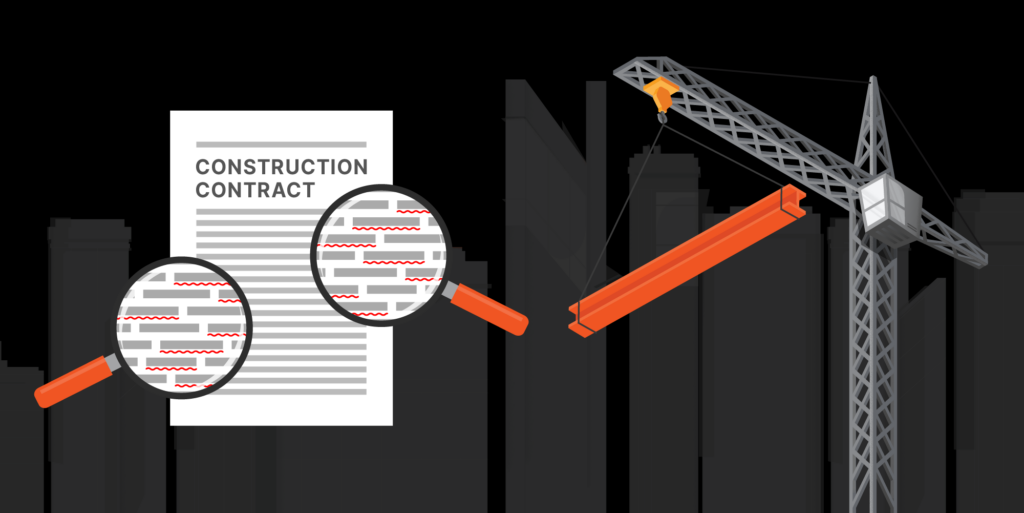— 3 min read
A Notice to Proceed Solidifies Project Timelines

Last Updated Dec 10, 2024

Alex Benarroche
Associate Counsel
26 articles
Alex Benarroche serves as Associate Counsel for Procore. His legal expertise includes construction, contracts, business, and intellectual property. Alex is bilingual in English and Spanish. He earned a J.D. from Loyola University College of Law and an M.S. in Intellectual Property and Internet Law from the University of Alicante in Spain. Originally from South Florida, Alex has called New Orleans home since 2003.
Last Updated Dec 10, 2024

While most construction schedules are set to begin from the signing of the contract, often the actual, on-site construction work for each of the individual parties hired to work on the project may not begin until they receive a notice to proceed from the party that hired them.
Read on as we take a look at this important document.
Table of contents
What is a notice to proceed?
A notice to proceed is a notification letter indicating that performance should begin under a construction contract. Any party that has hired another party on the project — be it a project owner hiring a contractor, a general contractor hiring a subcontractor, etc. — may utilize a notice to proceed to indicate the recipient should start their work.
A notice to proceed provides a clean, crystal-clear indication of when a particular party's project work begins. That party's performance time starts ticking from the date indicated in the notice to proceed document.
Why use a notice to proceed?
Obviously, timeframes are crucial for any given project. Construction schedules are incredibly important, and these notices help to clarify them. Further, when lenders are involved with a job, it might be important to show that work started on a certain date after the lender's first lien is in place on the property. Where the project start date is unclear and a lender is present, lien priority disputes could pose a serious threat to a lender's investment.
There are a few options when deciding how to determine when the project starts. The project commencement date will often be one of the following (or some combination):
- Contract date
- Date set forth in a notice to proceed
- Date a notice of commencement is filed
- Calculated based on some other detail described in the project contract or agreement
There can be several different reasons to delay the commencement. The owner may be waiting to get the contractor’s certificates of insurance and bonds before allowing them on the job site. A contractor might be asked to hold off so that permits can be secured. The customer might just need time to schedule contractors, mobilize workforce, or secure materials. They may not have access to the project site until a certain date. It might come down to something as simple as the lender's approval.
Regardless of the reason why the start date of the project needs to come sometime after the construction agreement is signed, a notice to proceed is an important tool to document the "official" date for the party in question.
Why can a notice to proceed be important?
Having documentation of everything happening on a project can help all parties understand deadlines, rights, and provide clarity in case any potential payment disputes that may arise.
When these notices aren't given in writing, it can prove to be difficult for all parties. Without something in writing, there's always a chance of a "he-said/she-said" scenario arising when it comes to establishing important project dates. Having it in writing establishes a link between the notice to proceed and the contract which can ultimately be legally enforced.
Increased communications can help avoid wasting valuable time and resources. Using a notice to proceed process ensures that contractors or subs don’t unilaterally begin executing the contract.
For contractors, this is useful because they can be sure that, regardless of any previous negotiations or discussions, they will only begin work (and begin to incur costs) once the notice to proceed is received.
Remember, that notice to proceed means “it's time to start work." So, any performance prior to receipt of the notice to proceed, where one is necessary, could potentially be a financial risk.
Was this article helpful?
Thank you for your submission.
95%
5%
You voted that this article was . Was this a mistake? If so, change your vote
Scroll less, learn more about construction.
Subscribe to The Blueprint, Procore’s construction newsletter, to get content from industry experts delivered straight to your inbox.
By clicking this button, you agree to our Privacy Notice and Terms of Service.
Thank you!
You’re signed up to receive The Blueprint newsletter from Procore. You can unsubscribe at any time.
Categories:
Written by

Alex Benarroche
Associate Counsel | Procore
26 articles
Alex Benarroche serves as Associate Counsel for Procore. His legal expertise includes construction, contracts, business, and intellectual property. Alex is bilingual in English and Spanish. He earned a J.D. from Loyola University College of Law and an M.S. in Intellectual Property and Internet Law from the University of Alicante in Spain. Originally from South Florida, Alex has called New Orleans home since 2003.
View profileExplore more helpful resources

Using Standard Operating Procedures for Better Contract Management
Every construction project is different, meaning that GCs have to be continually agile and strategic about applying their experience. Major categories change from project to project, from the owner to...

Understanding Supplementary Conditions on Construction Contracts
No two construction projects are exactly alike — and the same goes for construction contracts. Even when using a standard contract form, owners and contractors sometimes use supplementary conditions to...

A Straightforward Guide to Construction Contract Review
Construction contracts are like the glue for the project team. They’re the ties that bind the working relationships and goals for the project, containing information about responsibilities, liabilities and processes...

Escalation Clauses in Construction Contracts: When and How They Apply
In construction contracts, an escalation clause allows for the escalation of a certain price for labor or materials to be used in a construction project. This type of clause is most...
Free Tools
Calculators
Use our calculators to estimate the cost of construction materials for your next project.
Templates
Find a template to help you with your construction project tasks.
Material Price Tracker
Get the latest U.S. retail prices and view historical trends for common building materials.
Glossary
Explore key terms and phrases used in the industry.
